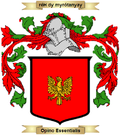Education in Myrotania
Education is compulsory in Myrotania from the ages of 5 to 17, split into 12 years of education split into three schools: primary, secondary, and tertiary school (similar to colleges in Britain).
Primary School
Primary School in Myrotania (prírăre koléJ) consists of 6 years of education from ages 5 to 17:
Infant school
- Primary-1 (5-6)
- Primary-2 (6-7)
- Primary-3 (7-8)
The colloquially named infant school is the first half of primary school where there is a slightly different syllabus to that of junior school. The syllabus involves learning age-appropriate materials (as provided by exam boards) for the following subjects:
- Mathematics
- English
- The Natural Sciences
- Esperanto
- Religious Education
Junior school
- Primary-4 (8-9)
- Primary-5 (9-10)
- Primary-6 (10-11)
The following subjects are to be learned in Junior school:
- Mathematics
- English
- The Natural Sciences
- Astrophysics
- Esperanto
- Myrotanian
- Religious Education
- Geography
Secondary School
In secondary school, the names of the classes are based on Latin ordinal numbers, as is found in some schools through Eastern Europe. The classes are:
- Septimus (11-12)
- Octavus (12-13)
- Nonus (13-14)
- Decimus (14-15)
The syllabus for these four years is:
- Mathematics
- English Language
- English Literature
- Chemistry
- Physics
- Biology
- Religious Education
- choice of Myrotanian/Esperanto/Latin
- choice of German/French/Spanish/Italian
- choice of History/Geography
- choice of Cooking/Drama/Art/Statistics
Tertiary School
Tertiary School contains the final two years of compulsory education:
- 11th year (15-16)
- Final year (16-17)
This school is much freer and allows a more open and usually wider choice of subjects to study. Students generally must choose 4 or 5 of the following to study:
- English (usually split into Language, Literature, etc.)
- The Sciences (usually split into Physics, Human Biology, etc.)
- Mathematics (again, possibly split)
- Language (usually split into Spanish, Myrotanian, Latin, etc.)
- Social sciences (usually split into Sociology, Psychology, etc.)
- Humanities (usually split into Geography, Religious Studies, etc.)
- History (usually split into Russian, American, etc.)
It can be thought of as any subject is learnable with the correct faculties and facilities.
Examinations
PAE
The Primary Aptitude Examinations (or PAEs) are the examinations resulting in a PAC (Primary Aptitude Certificate) academic qualification awarded in a specific subject, generally taken by students aged 11 (Primary-6) and certificates are awarded for the following subjects:
- Mathematics
- English
- The Natural Sciences
- Astrophysics
- Esperanto
SCA
The Secondary Certificate of Achievement (or SCAs) is the academic qualification resulting from examinations specific to the subject. These examinations are generally taken by students in their final year of secondary school (Decimus), aged 15, and certificates are awarded for a wide range of subjects. The compulsory subjects to study are, at a minimum:
- Mathematics
- English Language
- English Literature
- Chemistry
- Physics
- Biology
- Religious Education
- Two languages
- History or Geography
- One other (see Secondary School)
FBA
The Final Baccalaureate Assessments (or FBAs) are the examinations taken in the final compulsory year of education (students aged 16/17), resulting in an FBC (Final Baccalaureate Certificate) awarded for the results of the examinations. The national curriculum of Myrotania suggests that students take 5 subjects (of which there are many) to study at a tertiary level, however, 4 is the minimum required.
Grading
Myrotania, much like the academic grading system in Switzerland, uses a 6 point grading scale:
- 6.0 - perfect (100%)
- 5.5 - excellent
- 5.0 - very good
- 4.5 - good
- 4.0 - satisfactory
- 3.5 - sufficient
- between 0.0 and 3.5 - fail
- 0.0 - disqualified/not entered
And the grade for a certain exam is evaluated with the formula 5*([results_scored]/[max_results])+1.
For example, 84% -> 5*(84/100)+1 = 5.2 (very good)
 Empire of Myrotania |
Government
The Law of Myrotania • Monarchy • Foreign relations
Thomas I • History • Religion • Language • Alphabet • Politics  |
|---|